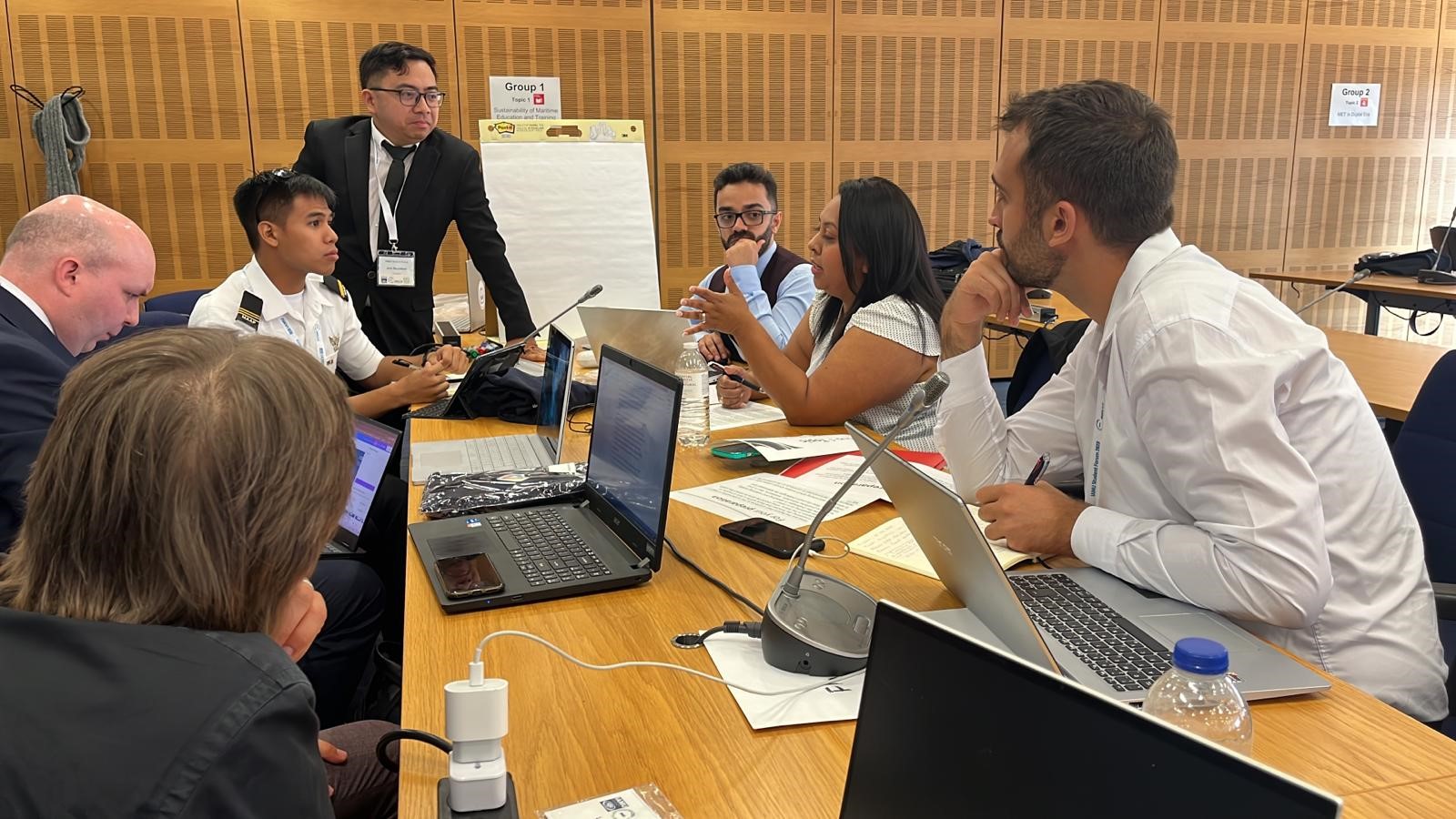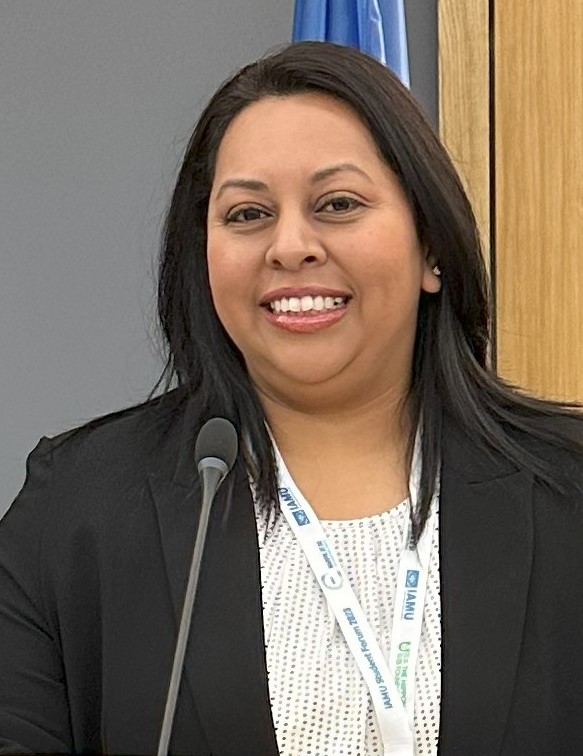The Worldwide Sustainability of Maritime Education and Training (MET)

“Sustainability regarding Maritime Education and Training is a challenge that is global in scope and need. In the greater Houston area, we are fortunate to have many stakeholders taking an active part in furthering maritime education workforce pathways from the junior high level up through area universities. With multiple maritime programs in place at area high schools as its base, the Houston area is led by the Port Houston Partners in Maritime Education non-profit organization. Stakeholders from the port, area industry organizations, public schools, colleges, universities, and employers work together through the program to establish and maintain pathways to bring young people into the industry. Academia’s seat at the table allows them to keep their programs up to date with the needs of employers and the fast-moving technological changes and requirements of the industry. This program is replicable around the country and globally.”
– John Hark, Adjunct Professor at Texas A&M and Regional Director for Bertling Logistics
The maritime industry significantly contributes to our local economy. This was particularly highlighted during the pandemic when consumers faced a shortage of their preferred goods in stores. The situation also emphasized that we no longer operate within an American, German, or Asian market but rather in a global market. The more interconnected and interdependent world economy, or globalization, is gradually replacing isolated national economies. To maintain the sustainability of globalization, it is important to consider the sustainability of maritime education and training as well as invest in its future.

The International Association of Maritime Universities (“IAMU”) hosted their 2023 Student Forum at the International Maritime Organization (“IMO”) headquarters in London, England, last July. The IAMU is a global network of leading maritime universities providing Maritime Education and Training for seafarers in the global shipping industry. The Student Forum consisted of 44 maritime universities The Student Forum provides a valuable platform for maritime student leaders to connect and collaborate. Students identify and discuss important issues related to specific topics, develop ideas, strategies, and solutions that deal with those issues, and give presentations outlining their group’s work.
Representing Texas A&M University at Galveston (“TAMUG), I participated in a student group focused on the “Sustainability of Maritime Education and Training” (or “MET”). Led by Professor Jeric Bacasdoon from the World Maritime University and Arvind Natrajan, an industry advisor from India representing the International Chamber of Shipping, our group engaged in various discussions on the factors that impact the sustainability of MET. These included maritime university curriculums, manufacturers, shipowners, and knowledge of Marpol An. VI. Throughout the sessions, emphasis was placed on the importance of collaboration.
As the participants worked together, they identified several challenges that need to be addressed to ensure the sustainability of MET. The first challenge discussed was the scarcity of maritime instructors with proficiency in the maritime industry. While our Student Forum participants agreed that maritime education could be elevated if universities hired more professors involved in the maritime industry, there is a limited pool of professors with maritime experience available. In addition, professors and universities must also balance teaching and research publication demands, which can limit industry involvement.
To tackle this predicament, the Student Forum proposed an “Exchange Teaching” program as a viable option. This would work in a similar fashion as a Foreign Exchange student program. By having professors exchange institutions, a more sustained curriculum within MET all around the world could be maintained.
"Without properly equipping maritime educational institutions, the industry faces a serious sustainability of manpower. We are in very serious times."
- Dr. Mawuli Afenyo, PhD., Assistant Professor Maritime Business Administration, Texas A & M University
The Student Forum also discussed the shortage of seafarers. They expressed their concern regarding the main challenges of the seafarer profession, which includes maintaining a work-life balance, dealing with excessive workload, and fulfilling job duties. Since many seafarers have traditionally come from maritime families and are familiar with the industry from a young age, we proposed that maritime education be introduced to children early on, preferably at an elementary school level. We recommended that maritime museums be given more attention and support from industry to further this goal. The maritime profession should also be included in the list of job opportunities taught at interactive museums. Another important factor the Student Forum suggested is that maritime schools should offer more scholarships to maritime students to help address the problem of high tuition fees.
"The sustainability of maritime education is strongly reliant on the maritime industry as it pushes to maintain competitive wages, work-life balance, and opportunities for growth within the industry. Additionally, Maritime should no longer be the best kept secret, so in order for maritime educational systems to thrive; we have to continue making it attractive, affordable and accessible to all.”
-Jonathan Rucker Sr., Senior Level Masters of BA and Logistics w/ License Option,
Texas A&M University Galveston
The last challenge the Student Forum recently discussed was staying current with rapidly advancing technology. It is widely acknowledged that technology is evolving quickly, making training difficult. To overcome this challenge, the Student Forum proposed upgrading campus facilities and resources to incorporate modern training methods. Though we recognized that not all schools have equal funding to tackle this challenge, we emphasized the importance of industry engagement in facilitating technology-related training.
The United States of America is very privileged. Locally, we have many resources to enhance the sustainability of MET. Many area stakeholders are actively engaged in schools throughout the region, and progress could be furthered by involving parents and school board members in maritime education. And maritime industry professionals' involvement could positively impact maritime students' studies and staff. TAMUG boasts exceptional professors who actively seek collaboration with industry professionals and even participate with students by sailing with us aboard the Kennedy training ship during the summer break.
What we do in our area can be more widely shared and help meet the goals of the sustainability of MET worldwide. The importance of MET sustainability as well as the other topics examined at the 2023 IAMU Student Forum will be published on the IAMU website here.
About the Author

Jessica Perez is currently pursuing her master's degree in Maritime Business Administration and Logistics through the 3+2 degree program at Texas A&M University - Galveston Campus, with expected graduation in December 2023. Her academic excellence and leadership qualities have earned her a recipient of many scholarships. She has been a volunteer and networking coordinator for the Student Association of Maritime Administrators (SAMA) since 2021. Perez is currently employed at Chevron in Houston in commercial shipping as a demurrage specialist.
